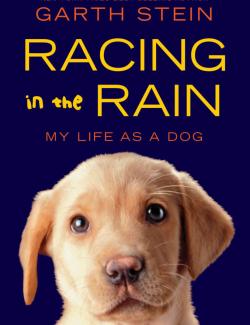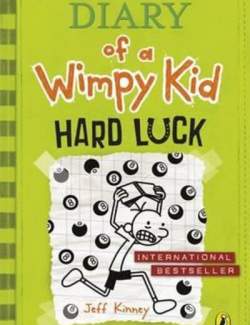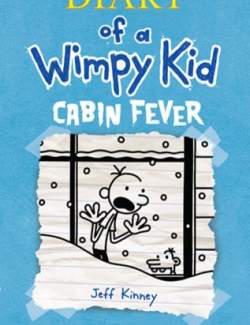(×òîáû ïåðåâîäèòü ñëîâà íà ðóññêèé ÿçûê è äîáàâëÿòü â ñëîâàðü äëÿ èçó÷åíèÿ, ùåëêàåì ìûøêîé íà íóæíîå ñëîâî).
1 Gestures are all that I have; sometimes they must be grand in nature. And while I occasionally step over the line and into the world of the melodramatic, it is what I must do in order to communicate clearly and effectively. In order to make my point understood without question. I have no words I can rely on because, much to my dismay, my tongue was designed long and flat and loose, and therefore, is a horribly ineffective tool for pushing food around my mouth while chewing, and an even less effective tool for making clever and complicated polysyllabic sounds that can be linked together to form sentences. And that’s why I’m here now waiting for Denny to come home—he should be here soon—lying on the cool tiles of the kitchen floor in a puddle of my own urine. I’m old. And while I’m very capable of getting older, that’s not the way I want to go out. Shot full of pain medication and steroids to reduce the swelling of my joints. Vision fogged with cataracts. Puffy, plasticky packages of Doggie Depends stocked in the pantry. I’m sure Denny would get me one of those little wagons I’ve seen on the streets, the ones that cradle the hindquarters so a dog can drag his ass behind him when things start to fail. That’s humiliating and degrading. I’m not sure if it’s worse than dressing up a dog for Halloween, but it’s close. He would do it out of love, of course. I’m sure he would keep me alive as long as he possibly could, my body deteriorating, disintegrating around me, dissolving until there’s nothing left but my brain floating in a glass jar filled with clear liquid, my eyeballs drifting at the surface and all sorts of cables and tubes feeding what remains. But I don’t want to be kept alive. Because I know what’s next. I’ve seen it on TV. A documentary I saw about Mongolia, of all places. It was the best thing I’ve ever seen on television, other than the 1993 Grand Prix of Europe, of course, the greatest automobile race of all time in which Ayrton Senna proved himself to be a genius in the rain. After the 1993 Grand Prix, the best thing I’ve ever seen on TV is a documentary that explained everything to me, made it all clear, told the whole truth: when a dog is finished living his lifetimes as a dog, his next incarnation will be as a man. I’ve always felt almost human. I’ve always known that there’s something about me that’s different than other dogs. Sure, I’m stuffed into a dog’s body, but that’s just the shell. It’s what’s inside that’s important. The soul. And my soul is very human. I am ready to become a man now, though I realize I will lose all that I have been. All of my memories, all of my experiences. I would like to take them with me into my next life—there is so much I have gone through with the Swift family—but I have little say in the matter. What can I do but force myself to remember? Try to imprint what I know on my soul, a thing that has no surface, no sides, no pages, no form of any kind. Carry it so deeply in the pockets of my existence that when I open my eyes and look down at my new hands with their thumbs that are able to close tightly around their fingers, I will already know. I will already see. The door opens, and I hear him with his familiar cry, “Yo, Zo!” Usually, I can’t help but put aside my pain and hoist myself to my feet, wag my tail, sling my tongue around, and shove my face into his crotch. It takes humanlike willpower to hold back on this particular occasion, but I do. I hold back. I don’t get up. I’m acting. “Enzo?” I hear his footsteps, the concern in his voice. He finds me and looks down. I lift my head, wag my tail feebly so it taps against the floor. I play the part. He shakes his head and runs his hand through his hair, sets down the plastic bag from the grocery that has his dinner in it. I can smell roast chicken through the plastic. Tonight he’s having roast chicken and an iceberg lettuce salad. “Oh, Enz,” he says. He reaches down to me, crouches, touches my head like he does, along the crease behind the ear, and I lift my head and lick at his forearm. “What happened, kid?” he asks. Gestures can’t explain. “Can you get up?” I try, and I scramble. My heart takes off, lunges ahead because no, I can’t. I panic. I thought I was just acting, but I really can’t get up. Shit. Life imitating art. “Take it easy, kid,” he says, pressing down on my chest to calm me. “I’ve got you.” He lifts me easily, he cradles me, and I can smell the day on him. I can smell everything he’s done. His work, the auto shop where he’s behind the counter all day, standing, making nice with the customers who yell at him because their BMWs don’t work right and it costs too much to fix them and that makes them mad so they have to yell at someone. I can smell his lunch. He went to the Indian buffet he likes. All you can eat. It’s cheap, and sometimes he takes a container with him and steals extra portions of the tandoori chicken and yellow rice and has it for dinner, too. I can smell beer. He stopped somewhere. The Mexican restaurant up the hill. I can smell the tortilla chips on his breath. Now it makes sense. Usually, I’m excellent with elapsed time, but I wasn’t paying attention because of my emoting. He places me gently in the tub and turns on the handheld shower thing and says, “Easy, Enz.” He says, “Sorry I was late. I should have come straight home, but the guys from work insisted. I told Craig I was quitting, and…” He trails off, and I realize that he thinks that my accident was because he was late. Oh, no. That’s not how it was meant. It’s so hard to communicate because there are so many moving parts. There’s presentation and there’s interpretation and they’re so dependent on each other it makes things very difficult. I didn’t want him to feel bad about this. I wanted him to see the obvious, that it’s okay for him to let me go. He’s been going through so much, and he’s finally through it. He needs to not have me around to worry about anymore. He needs me to free him to be brilliant. He is so brilliant. He shines. He’s beautiful with his hands that grab things and his tongue that says things and the way he stands and chews his food for so long, mashing it into a paste before he swallows. I will miss him and little Zo?, and I know they will miss me. But I can’t let sentimentality cloud my grand plan. After this happens, Denny will be free to live his life, and I will return to earth in a new form, as a man, and I will find him and shake his hand and comment on how talented he is, and then I will wink at him and say, “Enzo says hello,” and turn and walk quickly away as he calls after me, “Do I know you?” He will call, “Have we met before?” After the bath he cleans the kitchen floor while I watch; he gives me my food, which I eat too quickly again, and sets me up in front of the TV while he prepares his dinner. “How about a tape,” he says. “Yes, a tape,” I reply, but of course, he doesn’t hear me. He puts in a video from one of his races and he turns it on and we watch. It’s one of my favorites. The racetrack is dry for the pace lap, and then just after the green flag is waved, indicating the start of the race, there is a wall of rain, a torrential downpour that engulfs the track, and all the cars around him spin out of control into the fields and he drives through them as if the rain didn’t fall on him, like he had a magic spell that cleared water from his path. Just like the 1993 Grand Prix of Europe, when Senna passed four cars on the opening lap, four of the best championship drivers in their championship cars—Schumacher, Wendlinger, Hill, Prost—and he passed them all. Like he had a magic spell. Denny is as good as Ayrton Senna. But no one sees him because he has responsibilities. He has his daughter, Zo?, and he had his wife, Eve, who was sick until she died, and he has me. And he lives in Seattle when he should live somewhere else. And he has a job. But sometimes when he goes away he comes back with a trophy and he shows it to me and tells me all about his races and how he shone on the track and taught those other drivers in Sonoma or Texas or Mid-Ohio what driving in wet weather is really about. When the tape is over he says, “Let’s go out,” and I struggle to get up. He lifts my butt into the air and centers my weight over my legs and then I’m okay. To show him, I rub my muzzle against his thigh. “There’s my Enzo.” We leave our apartment; the night is sharp, cool and breezy and clear. We only go down the block and back because my hips hurt so much, and Denny sees. Denny knows. When we get back, he gives me my bedtime cookies and I curl into my bed on the floor next to his. He picks up the phone and dials. “Mike,” he says. Mike is Denny’s friend from the shop where they both work behind the counter. Customer relations, they call it. Mike’s a little guy with friendly hands that are pink and always washed clean of smell. “Mike, can you cover for me tomorrow? I have to take Enzo to the vet again.” We’ve been going to the vet a lot recently to get different medicines that are supposed to help make me more comfortable, but they don’t, really. And since they don’t, and considering all that went on yesterday, I’ve set the Master Plan in motion. Denny stops talking for a minute, and when he starts again, his voice doesn’t sound like his voice. It’s rough, like when he has a cold or allergies. “I don’t know,” he says. “I’m not sure it’s a round trip visit.” I may not be able to form words, but I understand them. And I’m surprised by what he said, even though I set it up. For a moment, I’m surprised my plan is working. It is the best thing for all involved, I know. It’s the right thing for Denny to do. He’s done so much for me, my whole life. I owe him the gift of setting him free. Letting him ascend. We had a good run, and now it’s over; what’s wrong with that? I close my eyes and listen vaguely in a half sleep as he does the things he does before he sleeps each night. Brushing and squirting and splashing. So many things. People and their rituals. They cling to things so hard sometimes. 2 He picked me out of a pile of puppies, a tangled, rolling mass of paws and ears and tails, behind a barn in a smelly field near a town in eastern Washington called Spangle. I don’t remember much about where I came from, but I remember my mother, a heavy bitch of a lab with pendulous teats that swung to and fro as my littermates and I chased them down from across the yard. Honestly, our mother didn’t seem to like us much, and she was fairly indifferent to whether we ate or starved. She seemed relieved whenever one of us left. One fewer yipping mammal tracking her down to bleed her of her milk. I never knew my father. The people on the farm told Denny that he was a shepherd-poodle mix, but I don’t believe it. I never saw a dog that looked like that on the farm, and while the lady was nice, the alpha man was a mean bastard who would look you in the eyes and lie even if telling the truth would serve him better. He expounded at length on the relative intelligence of dog breeds, and he firmly believed that shepherds and poodles were the smart ones, and therefore would be more desirable—and more valuable—when “bred back to a lab for temperament.” All a bunch of junk. Everyone knows that shepherds and poodles aren’t especially smart. They’re responders and reactors, not independent thinkers. Especially the blue-eyed sheep dogs from Down Under that people make such a fuss over when they catch a Frisbee. Sure, they’re clever and quick, but they don’t think outside the box; they’re all about convention. I’m sure my father was a terrier. Because terriers are problem solvers. They’ll do what you tell them, but only if it happens to be in line with what they wanted to do anyway. There was a terrier like that on the farm. An Airedale. Big and brown-black and tough. No one messed with him. He didn’t stay with us in the gated field behind the house. He stayed in the barn down the hill by the creek where the men went to fix their tractors. But sometimes he would come up the hill, and when he did, everyone steered clear. Word in the field was he was a fighting dog the alpha man kept separate because he’d kill a dog for sniffing in his direction. He’d rip the fur from a nape because of a lazy glance. And when a bitch was in heat, he’d mount her good and go about his business without a thought about who was watching or who cared. I’ve often wondered if he sired me. I have his brown-black coloring and my coat is slightly wiry, and people frequently comment that I must be part terrier. I like to think I came from a determined gene pool. I remember the heat on the day I left the farm. Every day was hot in Spangle, and I thought the world was just a hot place because I never knew what cold was about. I had never seen rain, didn’t know much about water. Water was the stuff in the buckets that the older dogs drank, and it was the stuff the alpha man sprayed out of the hose and into the faces of dogs who might want to pick a fight. But the day Denny arrived was exceptionally hot. My littermates and I were tussling around like we always did, and a hand reached into the pile and found my scruff and suddenly I was dangling high in the air. “This one,” a man said. It was my first glimpse of the rest of my life. He was slender, with long and lean muscles. Not a large man, but assertive. He had keen, icy blue eyes. His choppy hair and short, scruffy beard were dark and wiry, like an Irish terrier. “The pick of the litter,” the lady said. She was nice; I always liked it when she cuddled us in her soft lap. “The sweetest. The best.” “We were thinkin’ a keepin’ ’im,” the alpha man said, stepping up with his big boots caked with mud from the creek where he was patching a fence. That was the line he always used. Hell, I was a pup only a dozen weeks old, and I’d already heard that line a bunch of times. He used it to get more money. “Will you let him go?” “Fur a price,” the alpha man said, squinting at the sky, bleached a pale blue by the sun. “Fur a price.” 3 “Very gently. Like there are eggshells on your pedals,” Denny always says, “and you don’t want to break them. That’s how you drive in the rain.” When we watch videos together—which we’ve done ever since the very first day I met him—he explains these things to me. (To me!) Balance, anticipation, patience. These are all vital. Peripheral vision, seeing things you’ve never seen before. Kinesthetic sensation, driving by the seat of the pants. But what I’ve always liked best is when he talks about having no memory. No memory of things he’d done just a second before. Good or bad. Because memory is time folding back on itself. To remember is to disengage from the present. In order to reach any kind of success in automobile racing, a driver must never remember. Which is why drivers compulsively record their every move, their every race, with cockpit cameras, in-car video, data mapping; a driver cannot be a witness to his own greatness. This is what Denny says. He says racing is doing. It is being a part of a moment and being aware of nothing else but that moment. Reflection must come at a later time. The great champion Julian SabellaRosa has said, “When I am racing, my mind and my body are working so quickly and so well together, I must be sure not to think, or else I will definitely make a mistake.” 4 Denny moved me far from the farm in Spangle, to a Seattle neighborhood called Leschi where he lived in a little apartment he rented on Lake Washington. I didn’t enjoy apartment living much, as I was used to wide-open spaces and I was very much a puppy; still, we had a balcony that overlooked the lake, which gave me pleasure since I am part water dog, on my mother’s side. I grew quickly, and during that first year, Denny and I forged a deep fondness for each other as well as a feeling of trust. Which is why I was surprised when he fell in love with Eve so quickly. He brought her home and she was sweet smelling, like him. Full of fermented drinks that made them both act funny, they were hanging on each other like they had too many clothes between them, and they were pulling at each other, tugging, biting lips and jabbing fingers and yanking at hair, all elbows and toes and saliva. They fell onto the bed and he mounted her and she said, “The field is fertile—beware!” And he said, “I embrace the fertility.” And he plowed the field until it grasped the sheets in its fists, arched its back, and cried out with joy. When he got up to splash in the bathroom, she patted my head, which hovered low to the floor, me still being immature at just over a year old, and a little bit intimidated by all the screaming. She said, “You don’t mind if I love him, too, do you? I won’t come between you.” I respected her for asking, but I knew that she would come between us, and I found her preemptive denial to be disingenuous. I tried not to act off-putting because I knew how infatuated Denny was with her. But I admit I was less than embracing of her presence. And because of that, she was less than embracing of me. We were both satellites orbiting Denny’s sun, struggling for gravitational supremacy. Of course, she had the advantage of her tongue and her thumbs, and when I watched her kiss and fondle him sometimes she would glance at me and wink as if to gloat: Look at my thumbs! See what they can do! 5 Monkeys have thumbs. Practically the dumbest species on the planet, next to the duck-billed platypus, who make their dens underwater even though they breathe the air. The platypus is horribly stupid, but is only slightly dumber than a monkey. Yet monkeys have thumbs. Those monkey-thumbs were meant for dogs. Give me my thumbs, you fucking monkeys! (I love the Al Pacino remake of Scarface, very much, though it doesn’t compare to the Godfather movies, which are excellent.) I watch too much TV. When Denny goes away in the mornings, he turns it on for me, and it’s become a habit. He warned me not to watch all day, but I do. Fortunately, he knows I love cars, so he lets me watch a lot of Speed Channel. The classic races are the best, and I especially like Formula One. I like NASCAR, too, but I prefer it when they race on the road circuits. While racing is my favorite, Denny told me it was good for me to have variety in my life, so he often puts on other channels, which I enjoy very much as well. Sometimes if I’m watching the History Channel or the Discovery Channel or PBS or even one of the kids’ channels—when Zo? was little I’d end up spending half the day trying to pry goofy jingles out of my brain—I learn about other cultures and other ways of life, and then I start thinking about my own place in the world and what makes sense and what doesn’t. They talk a lot about Darwin; pretty much every educational channel has some kind of show about evolution at some point, and it’s usually really well thought out and researched. However, I don’t understand why people insist on pitting the concepts of evolution and creation against each other. Why can’t they see that spiritualism and science are one? That bodies evolve and souls evolve and the universe is a fluid place that marries them both in a wonderful package called a human being. What’s wrong with that idea? The scientific theorists go on and on about how monkeys are the closest evolutionary relative of people. But that’s speculation. Based on what? Based on the fact that certain ancient craniums have been found to be similar to modern man’s? What does that prove? Based on the fact that some primates walk on two feet? Being bipedal isn’t even an advantage. Look at the human foot, full of bent toes and calcium deposits and pus draining from ingrown claws that aren’t even hard enough to scratch at the earth. (And yet, how I yearn for the moment my soul inhabits one of these poorly designed bipedal bodies and I, too, assume the health concerns of a man!) So what if man’s body evolved from the monkeys? Whether he came from monkeys or fish is unimportant. The important idea is that when the body became “human” enough, the first human soul slipped into it. I’ll give you a theory: Man’s closest relative is not the chimpanzee, as the TV people believe, but is, in fact, the dog. Witness my logic: Case-in-Point
Èíôîðìàöèÿ
Ïîñåòèòåëè, íàõîäÿùèåñÿ â ãðóïïå Ãîñòè, íå ìîãóò îñòàâëÿòü êîììåíòàðèè ê äàííîé ïóáëèêàöèè.

















